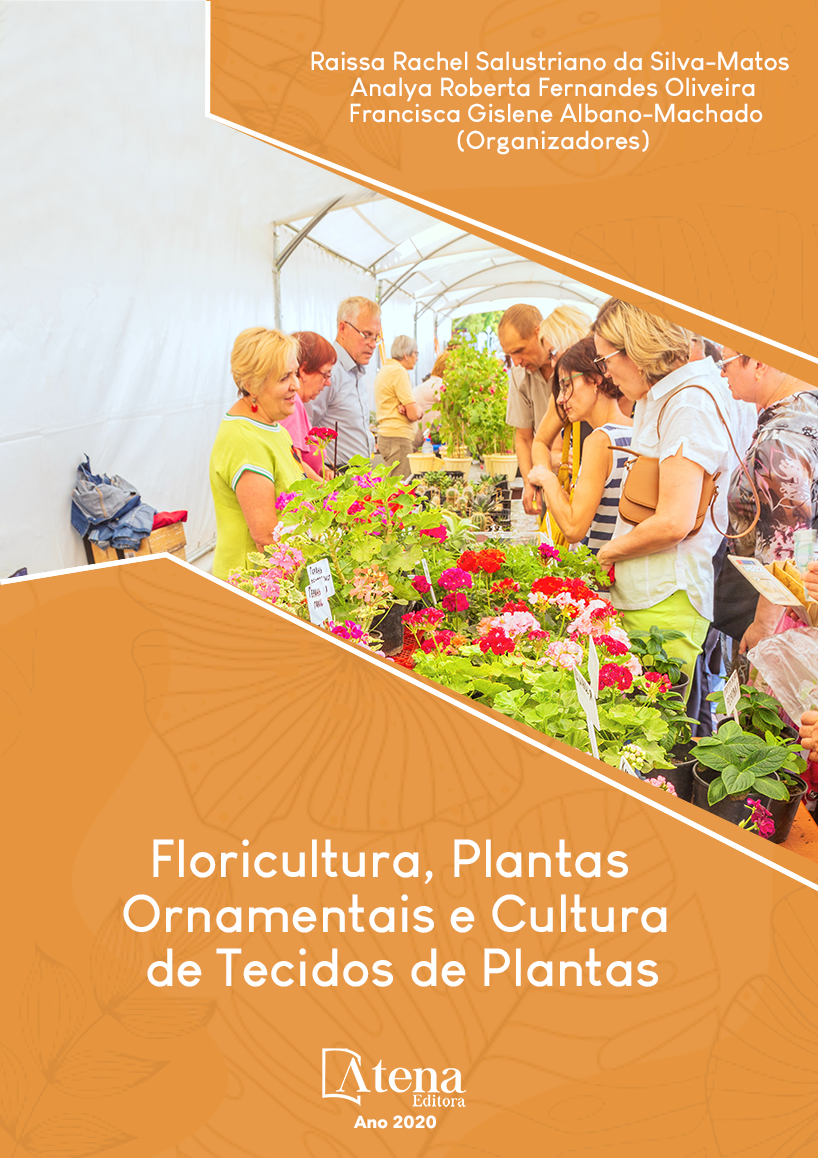
AVALIAÇÃO in vitro DE SUBSTRATOS NA GERMINAÇÃO E NO DESENVOLVIMENTO DE Aechmea blanchetiana (BACKER) L. B. SM.
Aechmea blanchetiana é nativa
da flora brasileira, com características que
atraem o interesse do seu uso em projetos
paisagísticos e ornamentações. A crescente
utilização desta espécie e a falta de um
sistema de cultivo comercial têm acarretado
na extração predatória desta Bromeliaceae. A
técnica de micropropagação de bromélias tem
apresentado resultados satisfatórios devido a
rápida germinação, ao rápido desenvolvimento
dos explantes e a alta confiabilidade genética.
O objetivo desse trabalho foi avaliar e comparar
a germinação e o desenvolvimento in vitro
de A. blanchetiana em meio nutritivo MS em
três concentrações nutritivas (25, 50 e 100%)
interagindo com quatro suportes (ágar, esponja,
hidrogel e ponte de papel), estabelecendo a
melhor condição para a planta. O delineamento
do experimento foi inteiramente casualizado
com quatro repetições e a parcela era
constituída por três sementes por tubo e o
delineamento de tratamentos sendo um fatorial
3x4 (concentrações nutritivas x suporte),
sendo o experimento conduzido no Laboratório
de Cultura de Tecidos Vegetais do Instituto
Federal do Sudeste de Minas Gerais – Campus
Barbacena. Após 30 dias da semeadura, foram
avaliados: porcentagem de germinação, índice
de velocidade de germinação diário (IVG),
número de folhas, desenvolvimento radicular,
massa fresca e massa seca. O tratamento
T1 (ágar + MS 100) apresentou a maior
porcentagem de germinação (60%) e o T9
(papel + MS 25) a menor porcentagem (25%). O
ágar apresentou o maior IVG (0,437), enquanto
o hidrogel o menor índice (0,329). Na interação
concentração nutritiva x suporte, os tratamentos T4 (hidrogel + MS 100) e T9 (papel + MS 25) apresentaram a menor média de número
de folhas. Após a análise estatística, concluiu-se que os tratamentos com o suporte
ágar apresentaram melhores médias gerais em todas as características analisadas
sendo nele a concentração de 100% a melhor.
AVALIAÇÃO in vitro DE SUBSTRATOS NA GERMINAÇÃO E NO DESENVOLVIMENTO DE Aechmea blanchetiana (BACKER) L. B. SM.
-
DOI: 10.22533/at.ed.7212030014
-
Palavras-chave: Bromeliaceae, Micropropagação, Planta ornamental, IVG.
-
Keywords: Bromeliaceae, Micropropagation, Ornamental plant, SG.
-
Abstract:
Aechmea blanchetiana is native from Brazilian flora with characteristics
that attract the use in landscape projects and as ornaments. The increasing use of
this species and the lack of a commercial cultivation system have led to the predatory
extraction of this Bromeliaceae. The bromeliads micropropagation technique has
shown satisfactory results due to the fast speed of germination, the fast development
of explants and high genetic reliability. The aim of this study was to evaluate and to
compare the in vitro propagation development and germination of A. blanchetiana in MS
nutrient medium in three nutrient concentrations (25, 50 and 100%), interacting with four
seeds supports (agar, sponge, hydrogel and paper bridge), setting the best condition
for the plant development. The experimental design was completely randomized with
four replicates and the plots were consisted on three seeds per tube and the treatments
design was a factorial 3x4 (nutrient concentration x support). The experiment was
conducted at Plant Tissue Culture Laboratory located at Instituto Federal do Sudeste de
Minas Gerais – Campus Barbacena Thirty days after seed inoculation, the percentage
of germination, speed of germination (SG), number of leaves, root development, fresh
mass, and dry mass were evaluated. The treatment T1 (agar + MS 100) had the highest
germination percentage (60%) and T9 (paper + MS 25) had the lowest percentage
(25%). Agar had the highest ESI (0.437), while the hydrogel the lowest index (0.329).
In the nutrient concentration x support interaction, treatments T4 (hydrogel + MS 100)
and T9 (paper + MS 25) had the lowest average number of leaves. After the statistical
analysis, it was concluded that the treatments with the agar support presented better
general averages in all the characteristics analyzed being the concentration of 100%
better than others concentrations.
-
Número de páginas: 15
- Sheila Maria Pereira de Andrade
- William Carlos Gonzaga Franco
- Marília Maia de Souza
- Felipe Douglas Ferreira


